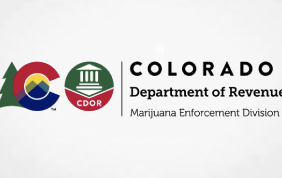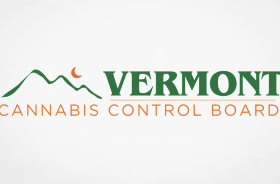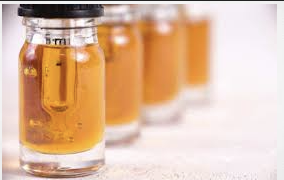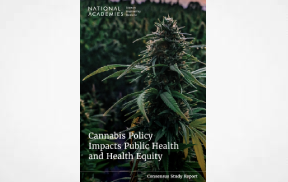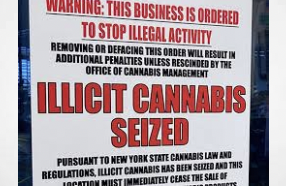UK Government Announces Definition For Cannabis-Based Medicines
Last week, the UK government announced how it will define cannabis-based products for medicinal use. Following the conclusion of the two-part review by the Chief Medical Officer and the ACMD on July 25th, Home Secretary Sajid Javid committed to swift action on the matter, and promised that these products would be lawful by autumn.
Following the Chief Medical Officer’s July report which recommended that the whole class of cannabis based medicinal products (CBMPs) be moved out of Schedule 1, the Home Secretary and Health and Social Care Secretary stated that it was ‘critical that we do not hinder the use of cannabis-based products for medicinal use for the relief of pain and suffering where medically appropriate and there is evidence.’
Commenting on the announcement CEO of Hanway Associates, George McBride said:
“There is not much new information in this announcement but the one important new piece of information is cause for concern – ‘Patients will not be able to get cannabis-based medicinal products from their general practitioner.’
”This fetter of the broad right for GPs in the UK to prescribe any drugs that they feel are needed for their patients’ medical care is likely to restrict patient access. An obsession over the risk of diversion of tested medical products onto the black market risks leaving hundreds of thousands of UK patients procuring untested cannabis from the black market.”
The definition, created by the Home Office, ACMD, Department of Health and Social Care (DHSC) and the Medicines and Healthcare Products Regulatory Agency (MHRA) outlines three requirements for the products:
- the product is or contains cannabis, cannabis resin, cannabinol or cannabinol derivatives
- the product must be produced for medicinal use in humans
- it must be a product that is regulated as a medicinal product or an ingredient of a medicinal product
The definition specifically mentions cannabinol, “which stems from the legal description of cannabis and cannabis products in the Misuse of Drugs Act 1971,” Hanway CSO, Dr Henry Fisher explains. “The Act explicitly includes ‘cannabinol and cannabinol derivatives’ alongside cannabis and cannabis resin – this was done at the time to ensure the Act covered all compounds detailed in the UN Convention on Psychotropic Substances 1971. The Act also gives a specific legal definition of ‘cannabinol derivatives’, which states which compounds are covered.”
The announcement came in the form of a response to the ACMD’s letter last week, responding to each of the 11 recommendations. Some key takeaways from the government’s announcement:
- CBMPs will be moved from Schedule 1 to Schedule 2.
- The medicines will be able to be prescribed by specialist doctors (on the Specialist Register of the General Medical Council) only, not general practitioners.
- Smoking will remain prohibited. No direction was given on vaporising.
- There will be a long-term review of CBMPs, which may lead to certain products being moved back into Schedule 1 or into other schedules.
- Until the autumn, specialist doctors will still be able to apply to the independent expert panel on behalf of patients wishing to access these products.
- Until products have gone through MHRA marketing authorisation, they will be regulated as unlicensed medicines for human consumption.
- The MHRA is updating their guidance on medicines specifically to support the rescheduling of CBMPs. The guidance will be available when the legislation is laid.
- NICE guidance on prescription of cannabis-based products for medicinal use is expected by October 2019.
For more information on these developments, please contact Hanway Associates.
French Launch Committee to Review Medical Cannabis | Pierre-Yves Galléty
On Monday 10th September, the National Agency for Health and Medicines (ANSM) announced the creation of a special committee to review the evidence supporting the effectiveness of medical cannabis. The special committee is expected to deliver their first conclusions by the end of 2018.
The committee, which is due to last one year from the appointment of its members, will include therapists, neurologists, oncologists, pharmacologists, pain management specialists, and social sciences specialists. Their goal is twofold:
- Review the evidence supporting the effectiveness of medical cannabis to treat certain medical conditions
- Review different policies on how to provide access to medical cannabis
The issue is pressing, as all countries bordering France have already begun regulating (or decriminalising) access to medical cannabis in one way or another. If French patients were to bring back medical cannabis from across the border, they would be treated as criminals.
A recent review in the UK began smoothly with a clear determination by the Chief Medical Officer that there was sufficient evidence to reschedule cannabis.
The second issue for the committee is a far more complex and controversial one: how should medical cannabis be given to patients?
Many European countries have allowed the use of the dried flower to be smoked as a route of administration but there is a strong public health lobby in France which has advocated restrictions on smoking. The French public health policies include yearly advertising campaigns that cost millions of euros, focused solely on reducing smoking rates among the population.
ACMD Advice on Medical Cannabis in the UK | George McBride
Yesterday, the UK’s Advisory Council on the Misuse of Drugs’ new (non-binding) advice to the Home Office on medical cannabis was published. Here are my preliminary thoughts.
<img src=”https://static1.squarespace.com/static/58b0667b1b10e39b2cde93ee/t/5b993ef51ae6cfe40ed5e1c5/1536769786632/ACMD-Banner.jpg” alt=”ACMD-Banner.jpg” />
1. Stringent standards for medical products are important, but the ACMD advice, if implemented, would make cannabis far harder to prescribe than other drugs, harming more patients than it would protect by restricting access.
2. Patients are already using cannabis. We need to work rapidly to make sure they are accessing tested products, rather than illegal untested products. We also already know a lot about side effects, risks and contraindications for cannabis.
3. Cannabis products have a very low risk profile and cannabis access is proven to reduce opiate fatalities — we can afford to be far more bold and optimistic.
4. I agree on the importance of giving more advice to those prescribing cannabis, but this has to be more than just guidelines – health professionals in the UK need extensive training.
5. Advocating clinical trials is great, but the UK already has the second highest number of cannabis trials in the world. The public called for access, not more evidence gathering. More clinical trials are needed, but not before wider access.
6. The recommendations state that, “at present the demand for CDMPs is unknown”. Hanway Associates are happy to inform here. Hint – the demand is very high indeed.
7. This advice advocates marketing authorisation for products, but gives no advice to MHRA on how to expedite or manage this process. Without a suitable process access could take years, not months.
8. There is clearly a lack of understanding about the unique opportunities cannabis medicines present for patients, practitioners and public health. More input from medical cannabis professionals would help.



